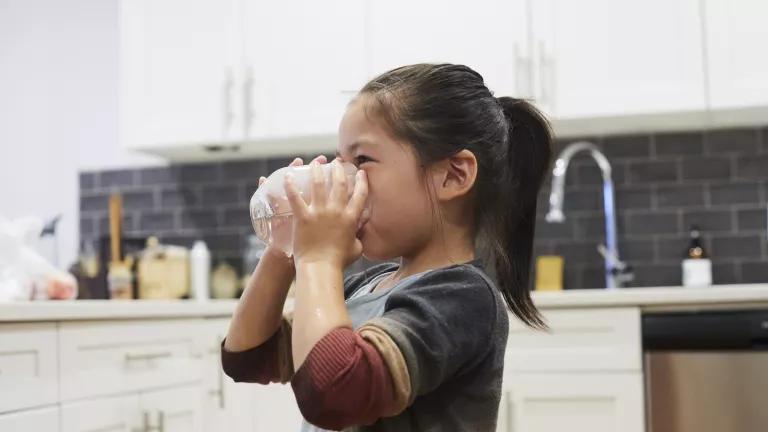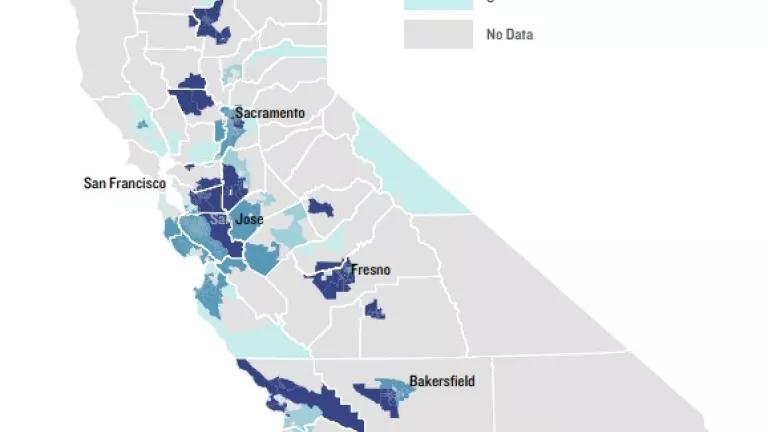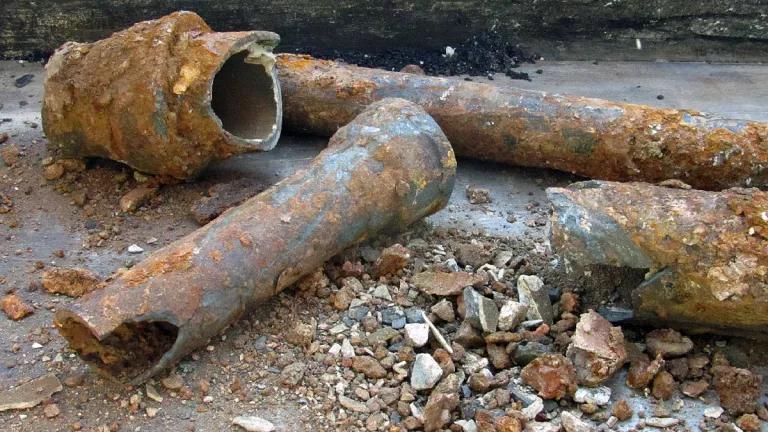East Ward at Risk for Lead Despite Newark Mayor’s Assurances

For most of 2018, the City of Newark’s website promised its residents that “Newark’s Water is Absolutely Safe to Drink,” even while reporting skyrocketing levels of lead, a highly toxic heavy metal, in the City’s tap water. Meanwhile, City officials are directing crucial and limited resources toward combatting all comparisons to the drinking water crisis in Flint, Michigan, including purchasing social media advertisements promoting the hashtag #NewarkisNotFlint. The data tell a much different story.
In 2017, 10 percent of water samples collected by the City showed lead levels above 26 parts per billion, nearly twice the federal action level of 15 parts per billion set by the U.S. Environmental Protection Agency. More recent data show markedly higher levels. Of the 154 samples taken by the City and posted to New Jersey Drinking Water Watch over the last five months, nearly half (48.7% of the 154) had tap water lead levels above the federal action level, with thirty homes above 40 parts per billion, and some as high as 131 and 250 parts per billion. A report commissioned by the City shows one home at nearly 400 parts per billion; the report concludes that running the tap to flush out the water is not effective at reducing lead.
Last month, after long delay and under pressure of ongoing litigation brought by the Newark Education Workers Caucus and NRDC, Mayor Ras Baraka finally acknowledged that the lead contamination presents a significant public health concern, and announced plans to provide drinking water filters to some residents in affected areas. But the City’s efforts to protect Newark residents fall short: The filter program is available to far too narrow a subset of impacted Newarkers, and even where residents may be eligible to receive a filter, the program is plagued by shortcomings and undercut by misleading statements from City officials.
Perhaps most problematic is the City’s misguided insistence that areas of Newark served by the Wanaque Treatment Plant—including the East Ward and parts of the North, Central, and South Wards—are unaffected by lead in the City’s drinking water. While the City now acknowledges that its treatment processes have failed, it claims those failures are limited to areas served by the Pequannock Treatment Plant. The City continues to assure residents served by the Wanaque Treatment Plant that they need not worry, and do not need water filters.
But the City has told a much different story to its regulator. In a letter to the State environmental agency (Nov 8, 2018), obtained recently by NEW Caucus and NRDC, City officials admitted that “it is likely that a blending zone exists . . . between the Wanaque Service area and the Pequannock Service area.” In plain language, this means that water from the troubled Pequannock Plant—where the City admits that lead reduction measures are not working—is “blending” into areas that receive water from the Wanaque Plant, including the East Ward.
There can be no dispute that East Ward residents are affected by this crisis. The map below, which plots sampling results the City submitted to the State environmental agency, shows that numerous homes in the East Ward have tested above 5 parts per billion. And at least five homes served by the Wanaque Treatment Plant—three in the East Ward and two in the North Ward—have tested above the 15 parts per billion federal action level. Earlier this summer, a tap water sample from one East Ward home showed lead at 182 parts per billion, more than 12 times the action level.
Unfortunately, unsafe lead levels have been reported in drinking water in Newark’s East Ward for years. In 2014, the City reported lead levels of 19 parts per billion in the Wanaque service area. Two years later, in 2016, lead levels above the federal limit were found in the drinking water of nearly half of Newark’s public schools, including at least three—Wilson Avenue School, South Street School, and East Side High School—located in the East Ward. Lead in drinking water at Wilson Avenue School, an elementary and middle school, reached 193 parts per billion. More recent data about lead in Newark’s schools have been removed from their original location on the Newark Public Schools district website.
The American Academy of Pediatrics recommends that lead not exceed 1 ppb in school water fountains. And experts agree that there is no safe level of lead exposure during the prenatal period and childhood when the brain is growing and developing. Even healthy adults exposed to lead can experience detrimental cardiovascular, kidney, and cognitive effects.
The data are clear: Newark’s failure to address the lead contamination of its drinking water affects residents in the East Ward. Yet, City officials continue to tell residents that areas served by Wanaque Treatment Plant are unaffected, and refuse to provide filters to East Ward residents, unless they can furnish a City-administered water sample showing levels above 15 parts per billion. But because of misleading statements made by their elected officials, East Ward residents have not been alerted to demand the resources—water testing and filters—necessary to protect themselves and their families. Of the 53 samples collected by the City in October, only two appear to have been taken from homes in the East Ward.
Last week, NEW Caucus and NRDC sent a letter to the City, demanding that the City provide water filters to residents in the Wanaque service area, including the East Ward. The City declined, and so on December 8, 2018, NEW Caucus and NRDC filed an emergency motion asking a federal court to order the City to provide drinking water filters to residents across Newark.
The City says it is providing free water testing if you call 973-733-6303 or email waterandsewer@ci.newark.nj.us. If you have tried to obtain a water filter from the City, but have been denied, please consider taking these steps to minimize your risk of exposure. If you have experienced difficulty getting your water tested by the City or receiving a filter through the City’s program, email NRDC at safewater4newark@nrdc.org.
Read More
The New York Times: A Water Crisis in Newark Brings New Worries




